There I was, standing in my kitchen, faced with a peculiar problem. I had just made a divine batch of crème brûlée, which left me with several egg whites just begging to be used. That’s when it hit me: I needed to find out how to freeze egg whites and make the most of my culinary experiments.
Emboldened by my determination to reduce waste and save money, I ventured into the fascinating world of egg white preservation. Now, I’m here to share my egg-citing findings with you. Get ready to embark on a bold journey, as I reveal the secrets of freezing egg whites for long-lasting freshness and top-notch quality. Let’s dive in!
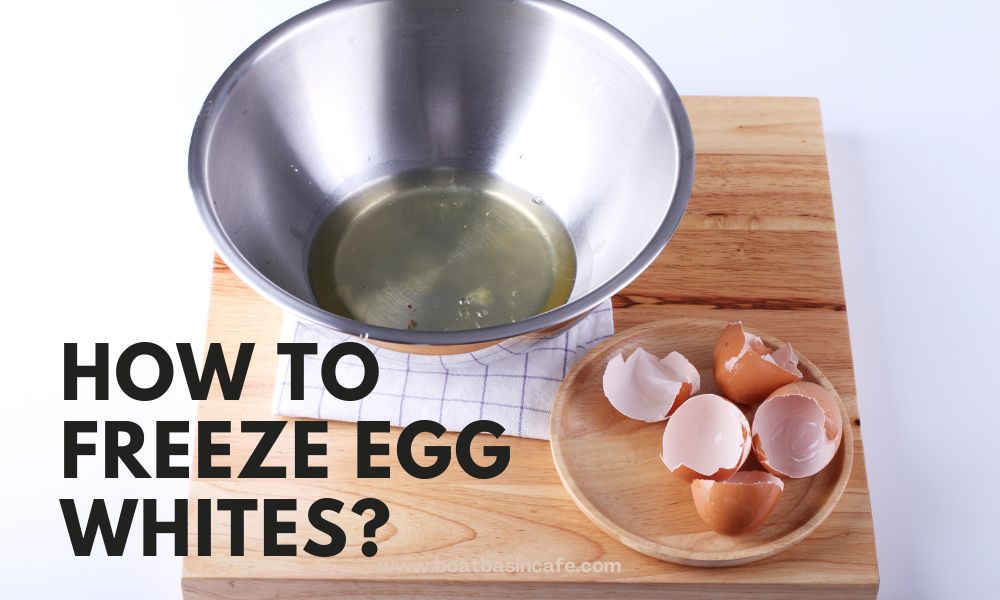
Preparing the Egg Whites for Freezing
Selecting the Right Eggs 🥚
- Freshness and quality of eggs: Choose eggs that are as fresh as possible. Check the expiration date on the carton and examine the eggs for cracks or damage.
- Tips for choosing the best eggs: Look for eggs with a clean, unblemished shell and a firm, plump yolk.
Separating the Egg Whites
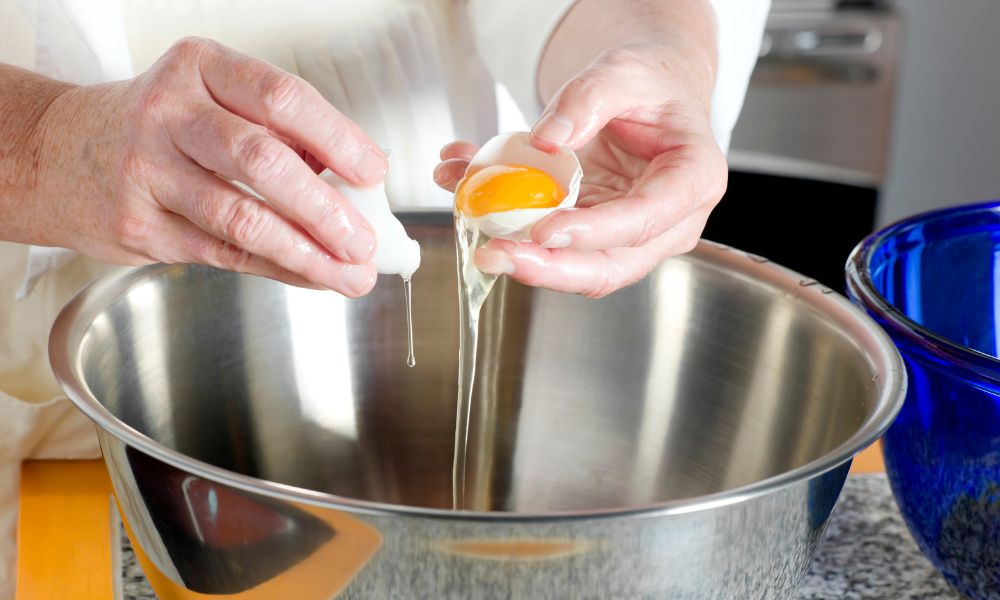
- Methods for separating egg whites from yolks: There are several methods for separating egg whites, including using an egg separator, a slotted spoon, or simply using your hands.
- Ensuring no yolk contamination: To avoid contamination, break each egg into a small bowl before transferring the egg white to your storage container. This ensures that a broken yolk doesn’t contaminate the entire batch.
Storing Egg Whites for Freezing
Choosing the Right Containers

- Different types of storage containers: Options include freezer-safe plastic containers, silicone molds, and ice cube trays.
- Pros and cons of each type: While plastic containers are affordable and stackable, silicone molds are more flexible and easier to remove frozen egg whites from. Ice cube trays are a convenient option for portioning.
Labeling the Containers
- Importance of labeling: Properly labeling your containers helps you keep track of the age and quantity of your egg whites.
- Information to include on labels: Note the date, quantity, and any special instructions for thawing or use.
Portioning the Egg Whites
- Determining the right portion size: Consider how you will use the egg whites in future recipes when deciding on portion sizes.
- Tips for easy measurement: One large egg white equals approximately two tablespoons. Use a tablespoon or a small measuring cup to measure the egg whites before freezing.
Freezing Egg Whites: The Process
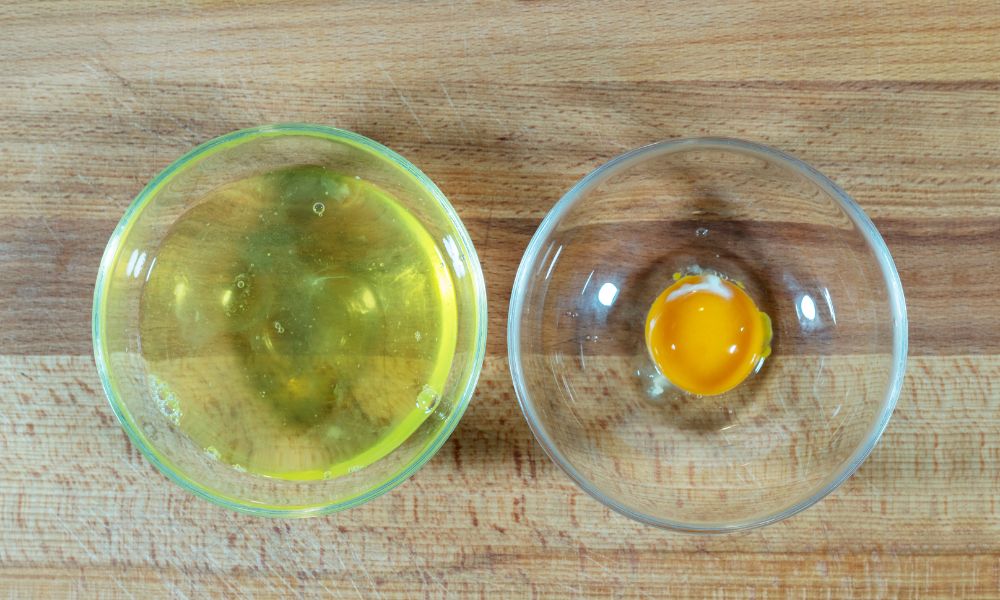
Pre-freezing Techniques
- Why pre-freezing matters: Pre-freezing helps prevent the egg whites from clumping together, making it easier to remove the desired amount later.
- Methods for pre-freezing egg whites: Pour the egg whites into a silicone mold or ice cube tray, then freeze for 2-3 hours, or until solid.
Freezing the Egg Whites
- Best practices for freezing: Transfer the pre-frozen egg whites to a labeled, airtight container or freezer bag.
- Ideal temperature and duration: Store the egg whites in the freezer at 0°F (-18°C) for up to 12 months.
Preventing Freezer Burn
- What is freezer burn: Freezer burn is caused by moisture loss and oxidation, resulting in a dry, off-tasting texture.
- Tips to prevent freezer burn on egg whites: Use airtight containers or heavy-duty freezer bags, and squeeze out excess air before sealing.
Thawing and Using Frozen Egg Whites
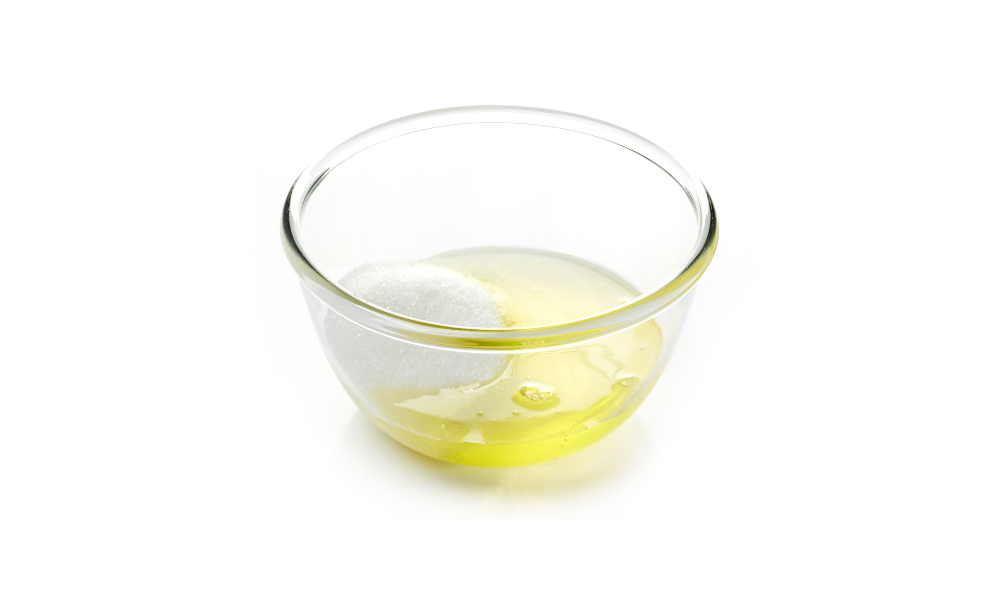
Safe Thawing Methods
- Best practices for thawing egg whites: Thaw egg whites in the refrigerator, or place the container in a bowl of cold water. It is important to note that one study found the foaming ability of whole egg white improved after the multiple freeze-thaw process.
- Avoiding bacterial growth: Never thaw egg whites at room temperature, as this can encourage bacteria to grow.
Whipping Frozen Egg Whites
- Techniques for successful whipping: Allow thawed egg whites to reach room temperature before whipping for best results. Use a clean, grease-free bowl and whisk or electric mixer.
- When to add sugar or other ingredients: Gradually add sugar or other ingredients after the egg whites have formed soft peaks to maintain stability and volume.
Using Thawed Egg Whites in Recipes
- Tips for incorporating thawed egg whites: Gently fold thawed egg whites into your recipe, being careful not to overmix and deflate them.
- Recipes that work well with frozen egg whites: Thawed egg whites are perfect for meringues, soufflés, angel food cakes, and as a substitute for whole eggs in baking recipes.
Troubleshooting Common Issues
Dealing with Odors
- Causes of egg white odors: Odors can result from freezer burn or absorbing smells from other foods in the freezer.
- Tips for preventing and removing odors: Use airtight containers and store egg whites away from strong-smelling foods. To remove odors, rinse thawed egg whites with cold water and drain well before using.
Addressing Texture Changes
- Causes of texture changes: Freezing and thawing can sometimes affect the texture of egg whites, making them less stable when whipped.
- Solutions for improving the texture of thawed egg whites: Add a pinch of cream of tartar, salt, or lemon juice during whipping to help stabilize the egg whites.
Storing and Freezing Other Egg Products
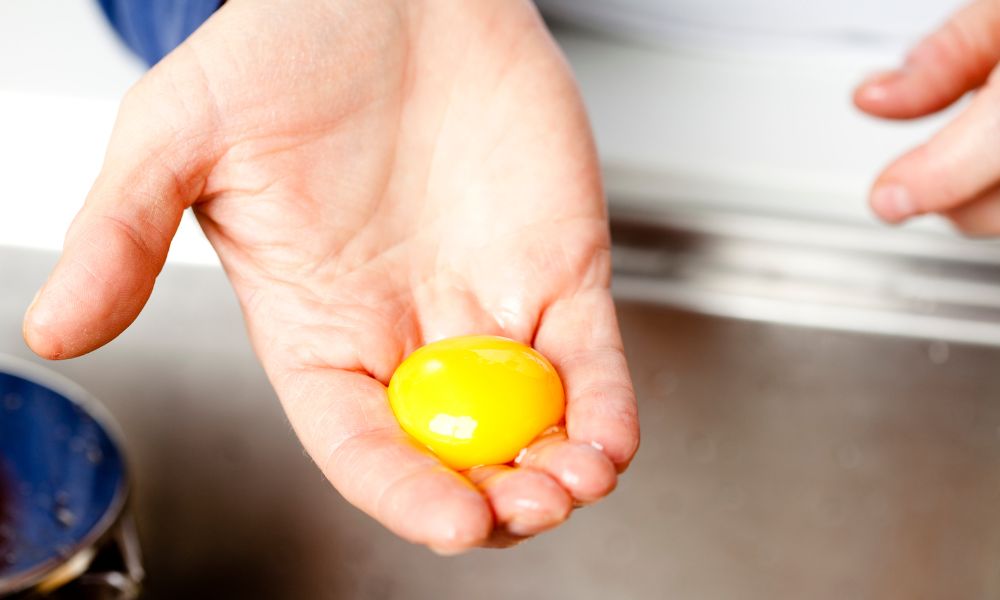
Freezing Egg Yolks
- Tips for freezing egg yolks: To prevent yolks from becoming gelatinous during freezing, mix in a pinch of salt or sugar before storing.
- How to use frozen egg yolks: Thawed egg yolks are great for making custards, sauces, and ice cream.
Freezing Whole Eggs
- Best practices for freezing whole eggs: Beat the eggs until well-blended, then pour into a labeled, airtight container or ice cube tray for freezing.
- Pros and cons of freezing whole eggs: While freezing whole eggs can save time, they may not have the same texture or volume as fresh eggs when used in recipes.
Conclusion
Freezing egg whites is a convenient and effective way to preserve their freshness for later use. By following the tips and techniques outlined in this guide, you can enjoy the benefits of having egg whites readily available whenever you need them. Give it a try and discover the possibilities of using frozen egg whites in your favorite recipes!
FAQs
Can you freeze egg whites in plastic bags?
Yes, you can freeze egg whites in plastic bags. Use heavy-duty, freezer-safe bags, and be sure to remove as much air as possible before sealing them. This helps prevent freezer burn and preserves the quality of the egg whites.
How long can egg whites be stored in the freezer?
Egg whites can be stored in the freezer for up to 12 months at a temperature of 0°F (-18°C). After this time, their quality may begin to decline.
Do frozen egg whites lose any nutritional value?
Freezing egg whites does not significantly affect their nutritional value. They still retain most of their protein, vitamins, and minerals when properly stored and thawed.
Can you refreeze thawed egg whites?
It is not recommended to refreeze thawed egg whites, as this can compromise their texture and quality. Use thawed egg whites as soon as possible to ensure the best results.
Is it safe to use frozen egg whites for raw recipes like meringues?
Yes, it is safe to use thawed egg whites in recipes like meringues, as long as they have been properly stored and thawed. Make sure to follow proper food safety guidelines when handling and preparing raw egg whites.
Are there any recipes that don’t work well with frozen egg whites?
Frozen egg whites can be used in most recipes that call for egg whites, but they may not produce the same results as fresh egg whites in recipes that rely heavily on their volume or stability, such as some delicate soufflés.
Can you freeze egg whites in their original shell?
No, it is not advisable to freeze egg whites in their original shell. The shells can crack during freezing, causing the egg whites to become contaminated or spoil. Always separate the egg whites from the yolks before freezing.
How can you tell if frozen egg whites have gone bad?
Signs that frozen egg whites have gone bad include an off smell, discoloration, or an unusual texture. If you suspect your frozen egg whites have spoiled, it is best to discard them and not use them in your recipes.








